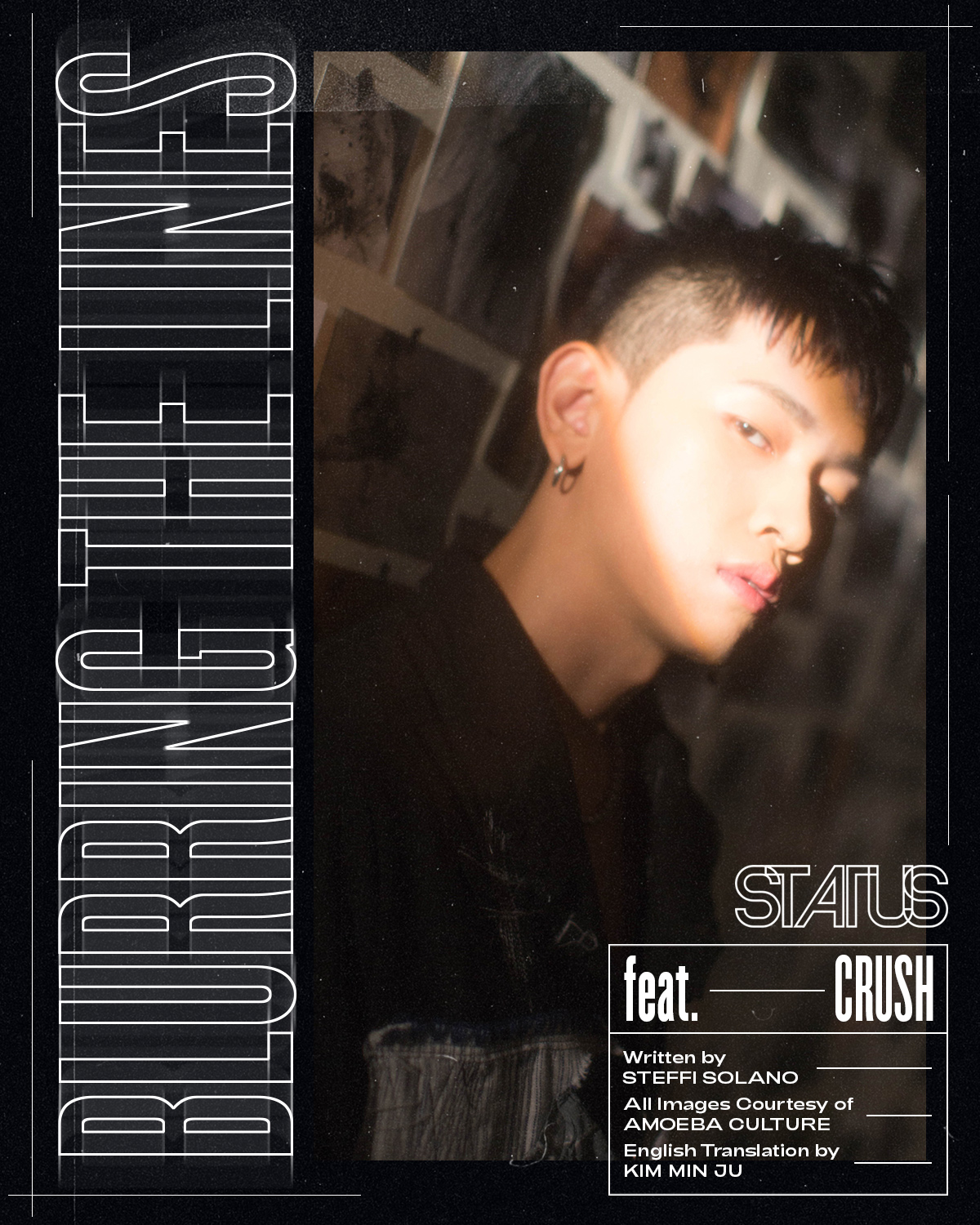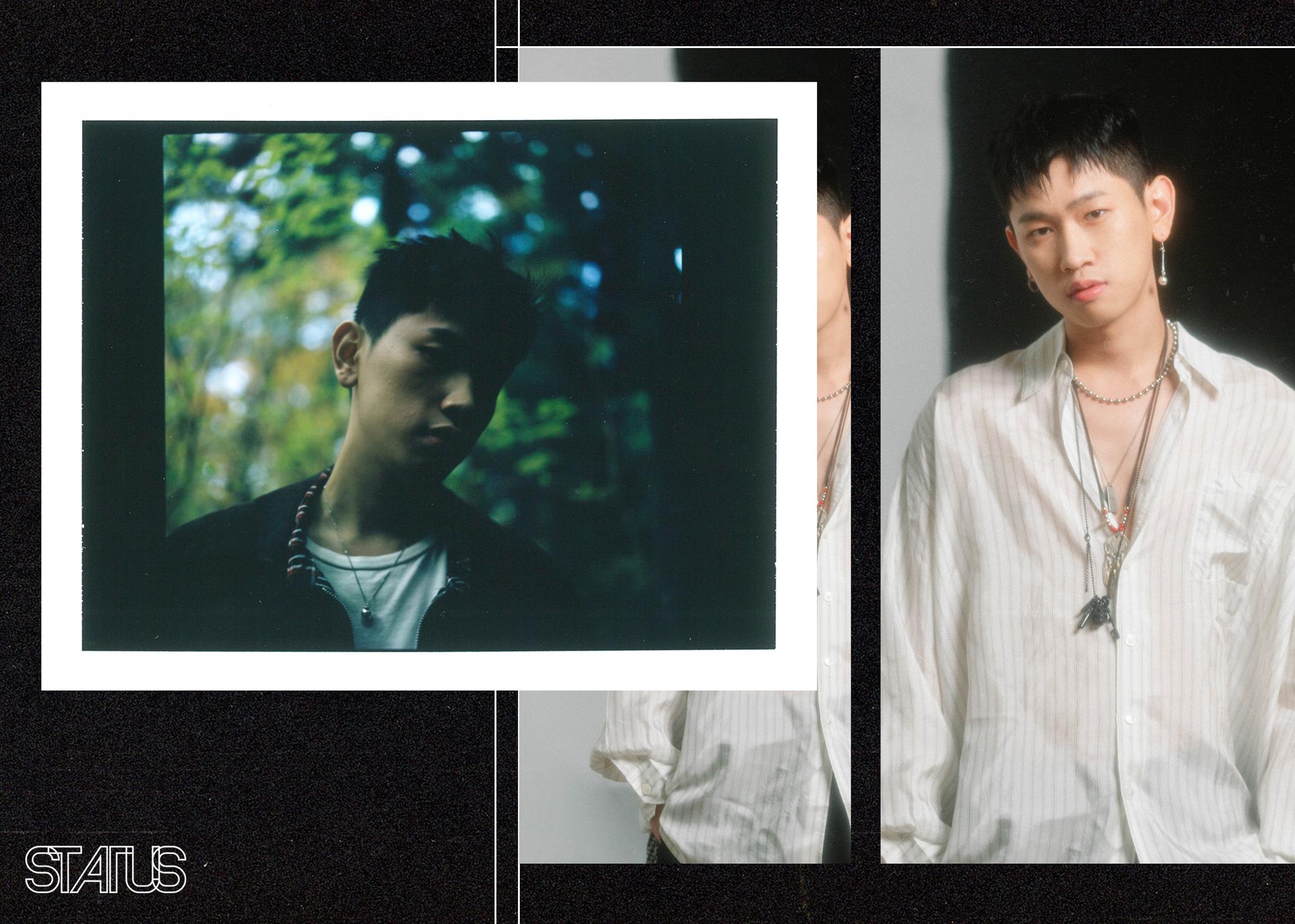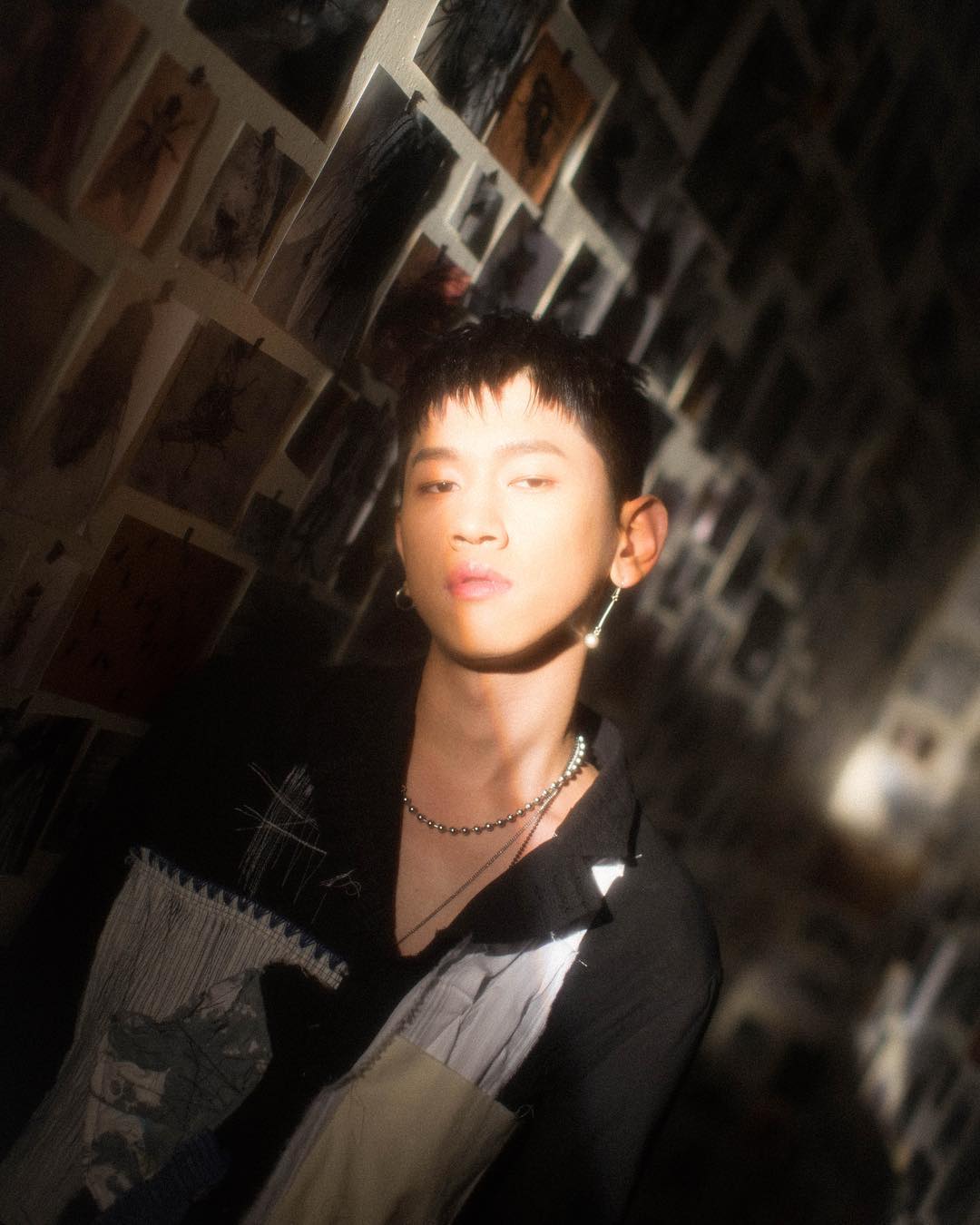Crush is Breaking the Mould in South Korea’s Flourishing R&B Scene
A musical name that needs no introduction, South Korean singer and producer CRUSH is no longer bound to the rules. As a figure in the R&B scope, he plays a significant role in the new wave of artists in the genre’s arsenal—stepping out of the box and taking his sound to the next level.

The R&B scene in Korea has taken quite the upsurgence of its own. Since its ascent in the ‘90s purveyed by acts like Seo Taiji & the Boys, what was a predominantly Japanese-influenced landscape boomed into a hotpot of styles and sounds comprising the genre; becoming modern R&B as we know it. Growing up, 26-year-old Crush—real name Shin Hyo-seob—possessed a penchant for urban music, beginning with rap at 14 and exploring R&B and Soul throughout his teenage years. “In Korea, I thought that the [hip-hop] team Dynamic Duo was doing good with urban music and I was their die-hard fan, so I wanted to be like them. That’s how I decided to start with music—I rapped and wrote lyrics, then I thought it would be fun if I could do production at the same time and taught myself to compose music.” From merely an outside admirer, he then signed on to Amoeba Culture, joining Dynamic Duo’s Gaeko and Choiza and worked to develop his own sound. What sets Crush’s artistic journey apart is that he didn’t enter music with the cognition that it was a career choice but was fueled with passion for the craft that allowed him to thrive as soon as he stepped into that domain. “Rather than deciding to make music as my career, I started out [in music] with curiosity and until now, [my] passion and energy have been flowing, so I’m here now as an artist who sings and produces.”

“Rather than deciding to make music as my career, I started out [in music] with curiosity and until now, [my] passion and energy have been flowing, so I’m here now as an artist who sings and produces.”
Crush’s entry into the scene left nothing short of genius. It’s his very zeal and unconventional perspective on R&B that makes his music so entrancing and special to his fans and R&B aficionados globally, despite the language barrier. With an extended play trilogy spanning from 2016 creations Interlude and Wanderlust to the concluding Wanderlost—he built a body of work that solidified his place in the scene, amassing a passionate fanbase extending across oceans that gained him acclaim on a grander scale. Joining musical collective, Fanxy Child alongside hip-hop and alternative R&B marvels like Zico and Dean, Crush now creates on a broader note than what he was accustomed to in his debut record Crush On You, telling of his affinity for challenge and the atypical; going as far as teaming up with artists with a different style in his wide array of collaborative feats.

He admits he used to release commercially-viable music to cater to the mainstream sound, easily digestible particularly to the South Korean audience. Thus, Soundcloud was the platform that freed his creativity where he posted his experimental, sample-heavy soul and future bass tracks. Now he’s done confining himself. “I don’t think there is a need to separate [my music] into two categories anymore. Because I was able to make the music I want and there are people who like them.” The fusion materialized in his three EPs, veering away from a poppier approach and going back to his rap roots as well as dipping into electronic and more personal ballads. Perhaps the unfiltered “RYO” was the most distinctive and one representative of his true colors as a musician as he raps about shedding the pretenses about his identity. As far as artistic trajectories go, Crush is moving on up as he closes the trilogy and opens up a new era—expanding to North America in his second world tour alongside Band Wonderlust and further experimenting with his sound as he tackles a melancholic approach with “None” and singing in English for the first time with “Lay Your Head On Me”.
“It takes a lot of effort to make a gemstone and it might get a few scratches during the process. I don’t think I’m ready to say that I am making the timbre of music that I want, I’m still in the process of finding my style.”

We had a chance to speak to Crush about his changeover as closes the age of Wonderlost. Although he is tight-lipped on what’s to come for his future records, he’s open about discussing the shift in his sound and style as he dips into new waters for 2019, including possibly expanding to the West—though he notes that it’s not that simple.
Your latest releases, “Lay Your Head On Me” and “none” took on a more mellow, acoustic approach compared to your other tracks. What made you want to take on this route?
Worldwide music trends are changing rapidly. I began to realize that I was after the bandwagon too much so I tried to concentrate more on the lyrics and melody and I think that gave more approach to the minimal and acoustic sound.
A limited edition vinyl of “None” was issued when the shows for Wonderlost were being held in Korea. Vinyl isn’t a common thing in the Korean music scene, why did you decide to do one? Tell us about the B-side tracks.
Lately, vinyl is a field of my interest. I thought it had more uniqueness and collectible value than CDs, so I decided to produce them. For my first attempt, I released the limited edition at [a] concert [in Seoul]. Fans liked them and a lot of people listening [to] and approaching music in an old-fashioned way made me feel pleased substantially. For the specialty, I included a hidden track on the B-side that I would like my fans to hear. When times pass by, I think it will be an important motive for me to look back on myself.
“Lay Your Head On Me” is your first English track, you’ve previously expressed that you’re open to doing more songs in English. In this time where Korean music keeps getting more attention on a global scale, do you also have plans to expand your artistry in the West like a lot of Korean artists?
I don't think that debuting in the US requires just my choice, will, or passion. But I think positively in working internationally and I will keep on trying if I have the chance to.
You just finished touring North America and select cities in Europe. Now that you’ve been on two world tours, what would you say is the biggest difference between performing for Western crowds vs Korean crowds?
Just like Korean fans, Western fans were enjoying and applauding enthusiastically for my performances, and I am so grateful to them. Even though I had a very tight schedule, I got energy and diligence in my performances because of the foreign fans who support me. It kept me motivated even in my tight schedule.
Developing your sound over the years as an artist, is there now a clear-cut method when it comes to creating a Crush track?
There are no manuals. In fact, I think that the mindset is very important when making music or working with someone. Every producer or songwriter may have their own pattern, but I decide on the type of music I want to make first then I work on melody, lyrics, or arrangement. Because I have various possibilities of musical direction, I don’t have specific patterns for composition.
As someone who has worked with a variety of artists and has dabbled in different genres, what do you consider to be the most crucial element that makes your musical style truly your own? Did you have that desire to curate the Crush sound from the very beginning?
It takes a lot of effort to make a gemstone and it might get a few scratches during the process. While working on various types of music, I don’t think I’m ready to say that I am making the timbre of music that I want, I’m still in the process of finding my style.
You’ve got plenty of collaborations under your belt, a lot of the artists even distinctly contrasting to your own sound. How do you find the middle ground when working on these collaborations?
When I do collaborations, I talk a lot with other artists. We share and communicate in advance and we work together by giving each other opinions on what we want or what kind of musical direction we have and these synergies turn well into the output.
What motivates you to keep making music?
Fans who support and keep cheering for me, staff who are always going through hardships around me, my family, and [my dog] Doyou.
You mentioned in an interview before that you release more commercially-friendly songs and put your more experimental creations on a separate platform (such as Soundcloud). Has that line between Crush in a commercial context vs experimental been blurred? It sounded like that was the case with Wonderlost, especially when you made “RYO” that showed people a different side of you. Has your mindset changed as you progressed?
I think this is a great question. While I was working on music last year, I concluded that there are no genres and boundaries to music. Since I want to work on experimental music, besides specific platforms, these are also released for the public. Even if the creation is not commercial, a lot of people are listening to them and I’m trying to get their feedback. The experimental songs will be continuously released in the commercial albums and I will boldly continue to do this because I do not think this is competitive at all.
Post a comment